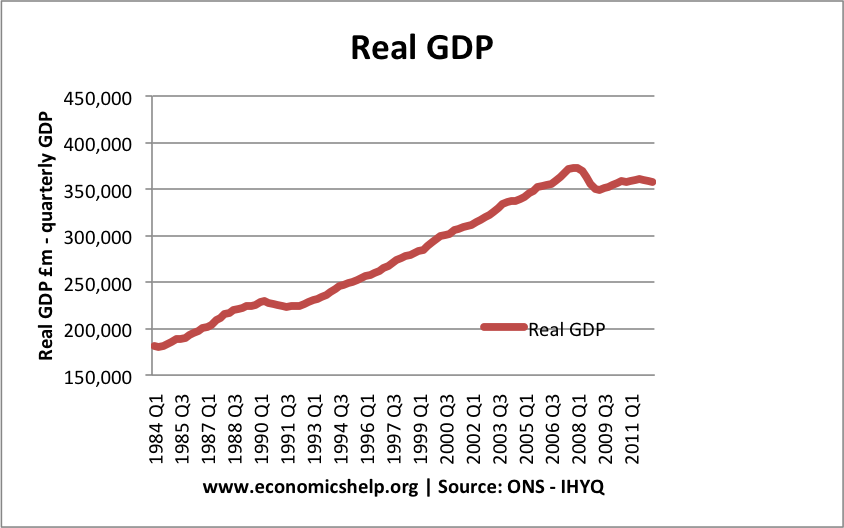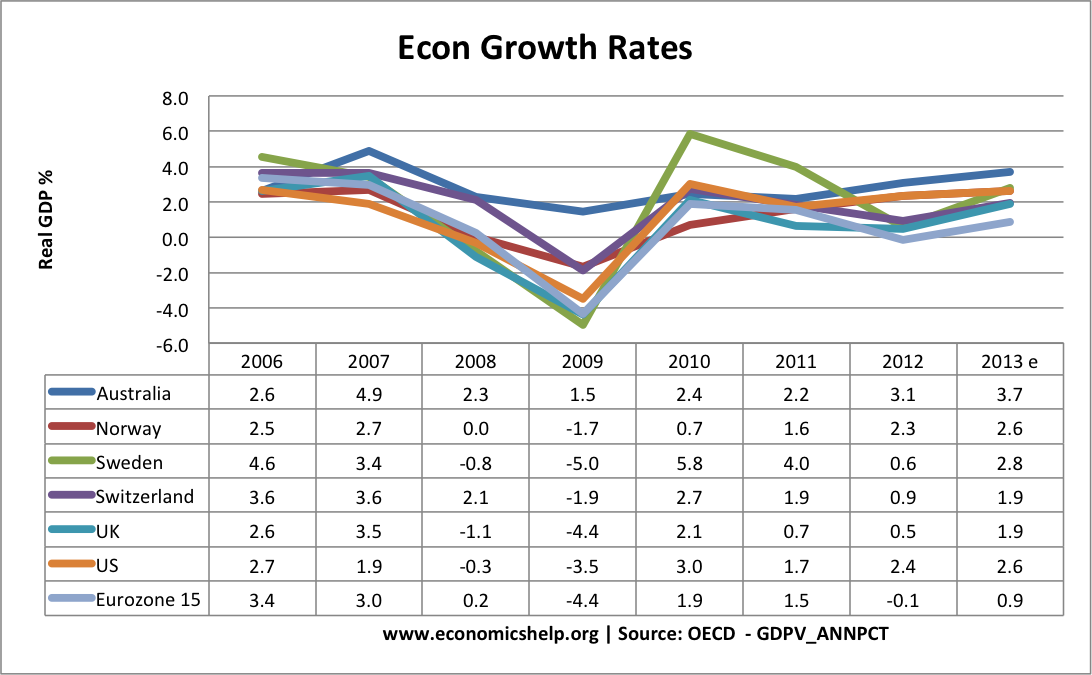Readers Question: why does economic growth not get noticed by the man on the street?
- Recently, the ONS released a report saying that real wages were 62% higher than in 1986. This is the result of sustained economic growth. (Real wages take into account inflation.)
- In April 2011 the average full-time employee in the UK earned around £12.62 per hour excluding overtime.
- This is a monetary (nominal) increase of 226% since 1986 when the average wage was £3.87 per hour.
Inequality of Real Income growth
- The top 1 per cent had the biggest increase between 1986 and 2011, at 117%
- The top 10 per cent saw an increase of 81%
- The bottom 10 per cent had a 47 % increase.
- The very poorest did better, with the lowest 1 per cent having a 70% increase.
However, in the period 2007-11, all income groups have seen a fall in real wages as nominal wage growth has failed to keep up with inflation.

If we asked people do they feel better off than 1986, it is hard to know what people would say. I’m sure some would feel better off, but many may reply they don’t. Why don’t people notice economic growth? Some possible reasons:
- Economic Growth and living standards. Economic growth measures the increase in real GDP (real output, real incomes). However, GDP is often a poor reflection of living standards and peoples sense of well being. For example, despite rising real incomes, people may not feel as well off. This could be because:
- Quality of life diminished by pollution or increased congestion
- Increased fear of crime that may occur with economic growth. (Ironically, with more income, people have more to lose. Crime rates are higher in the UK, than in the 1930s – a period of greater poverty)
- see also: difficulty in measuring living standards

